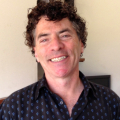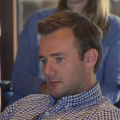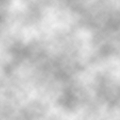Belief in Free Will
Another line of research in the lab has investigated the impact of manipulating free will beliefs on subsequent behaviors and beliefs. Vohs & Schooler (2008) found that participants who were told that science had ruled out free will believed less in free will and were more likely to cheat on various laboratory tasks. However, in a subsequent study, we demonstrated a possible benefit of discounting free will. Specifically, we found that people appear to be less retributive in their sentencing judgments (Shariff et al., 2009) when exposed to the message that free will is an illusion. This research along with a more theoretical exposition of science’s role in informing the free will debate is discussed in a recent chapter (Schooler, 2010).
Most recently, we developed a study using an economic contribution game under varying time constraints to elucidate whether reducing belief in free will allows one to justify negative behavior or if the effects occur at a more intuitive level of processing (Protzko, Ouimette, & Schooler, 2016). Here we showed that although people are intuitively cooperative, challenging their belief in free will corrupts this behavior, leading to impulsive selfishness. If given time to think, however, people are able to override the initial inclination toward self-interest induced by discouraging a belief in free will. This study followed a previous line of research investigating the contribution of free will beliefs in supporting attributions of moral responsibility. Four studies investigated this relationship using both measured and manipulated free-will beliefs. Study 1 found that people with weaker free-will beliefs endorsed less retributive, but not consequentialist, attitudes regarding punishment of criminals. Subsequent studies showed that learning about the neural bases of human behavior, through either lab-based manipulations or attendance at an undergraduate neuroscience course, reduced people's support for retributive punishment (Studies 2-4). These results illustrate that exposure to debates about free will and to scientific research on the neural basis of behavior may have consequences for attributions of moral responsibility.
As these studies show, regardless of whether free will exists, believing that it does affects one's behavior.
News
Selected Publications
- Manipulating Belief in Free Will and Its Downstream Consequences: A Meta-Analysis
- Believing there is no free will corrupts intuitive cooperation
- Free will and punishment: a mechanistic view of human nature reduces retribution.
- The Value of Believing in Free Will: Encouraging a Belief in Determinism Increases Cheating
- What Science Tells Us About Free Will





